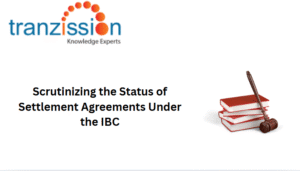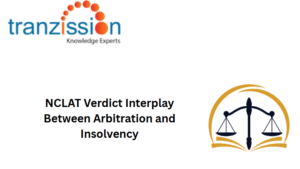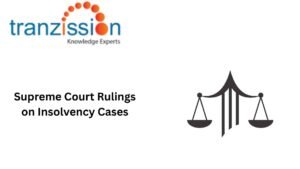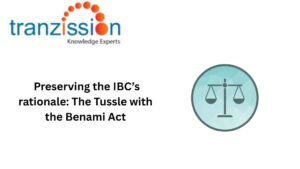
What is the purpose of AFA for Insolvency professionals?

Table of Contents
Having an authorisation of assignment (AFA) is a crucial requirement for insolvency professionals (IPs) to accept assignments as interim resolution professionals, resolution professionals, liquidators, bankruptcy trustees, or any other role under the Insolvency and Bankruptcy Code, 2016 (IBC). Without a valid AFA for Insolvency professionals, an IP cannot accept assignments at any stage of the resolution process.
What is Authorisation for Assignment (AFA) Under IBC?
Definition & Purpose of AFA for Insolvency professionals:
According to Regulation 2(1)(aa) of the Insolvency and Bankruptcy Board of India (Insolvency Professional) Regulations, 2017 (hereon forward known as “the IP Regulations”), “authorisation for assignment” means an authorisation to undertake an assignment, issued by an insolvency professional agency to an insolvency professional, who is its professional member, in accordance with its bye-laws. In simple terms, it is a regulatory certification issued by the Insolvency Professional Agency (IPA). It enables an IP to accept insolvency assignments and aims to ensure that only qualified and compliant professionals handle resolution and liquidation cases. AFA is issued as per Regulation 7A of the IP Regulations.
Why is AFA Mandatory for Insolvency Professionals?
AFA is mandatory as an IP cannot undertake any assignment under the IBC unless they hold a valid AFA issued by their IPA. It strengthens accountability and governance among IPs and prevents unregulated individuals from handling high-stakes insolvency assignments. It further enhances public trust in IBC-driven resolution processes.
Eligibility & Compliance Requirements for AFA
Who Needs an AFA?
All IPs enrolled with an IPA, regardless if they are enrolled in the Indian Institute of Public Administration (IIPA), the Institute of Chartered Accountants of India (ICAI), or the Institute of Company Secretaries of India (ICSI), must obtain AFA for Insolvency professionals before accepting assignments. This applies to insolvency cases on the corporate insolvency resolution process (CIRP), bankruptcy, liquidation, and voluntary liquidation cases under the IBC.
Conditions for Obtaining an AFA for Insolvency professionals:
To obtain an AFA, an IP must be registered with the IBBI, be a fit and proper person, not be employed while holding an AFA for Insolvency professionals, no disciplinary proceedings, or regulatory actions pending against such an individual. They must also ensure compliance with the Continuing Professional Education (CPE) requirements set by IBBI.
Process for Applying for AFA:
To apply for an AFA an IP must submit an application through the respective IPA portal and access Form AA within their online account. After filling out the form and ensuring the eligibility conditions, it is necessary for IPs to complete the self-declaration form. An IP must complete the IPA processes, after which the AFA is granted. It is to be noted that AFA is subjected to regulatory checks and needs to be renewed every 12 months to maintain validity.
Regulatory Framework Governing AFA Under IBC
IBBI Regulations on AFA Compliance:
The IP Regulations, specifically Regulations 2(1)(aa) and 7, define AFA and its compulsory nature. According to section 208 of the IBC, IPs must comply with professional standards set by the IBBI and their respective IPAs.
Role of Insolvency Professional Agencies in AFA Issuance:
IPAs ensure that IPs meet the eligibility criteria and are fit and proper to handle insolvency cases as per the IBC. They act as regulatory bodies overseeing the issuance, including renewing AFAs, and conducting due diligence to verify the professional conduct, and compliance of the applicants. Thus IPAs have the primary function of granting membership to IPs, framing standards of professional conduct and ethics for their members, and ensuring adherence to the IBC.
Challenges & Compliance Issues in AFA Implementation
Common Reasons for AFA Rejection:
The primary reasons for rejecting AFAs by the IBBI are pending disciplinary proceedings against the IP and non-compliance with CPE training requirements, and the failure of IPs to submit complete documentation during the application process.
Read more: Relationship between insolvency law and credit ratings
Challenges Faced by IPs in AFA Renewal:
Once the time for renewal arrives, IPs may face procedural issues because of the delays in processing due to backlog at IPAs. The lack of awareness among IPs regarding AFA renewal timelines makes it difficult to renew their AFA.
Penalties for Accepting Assignments Without AFA:
When IPs do not comply with the AFA requirements, it can lead to disciplinary action by the IBBI and their respective IPA. Further, their IP registration can be potentially suspended for violating regulatory norms.
Case Studies – AFA Implementation & Regulatory Actions
The IBBI has taken strict action against professionals taking insolvency cases without valid AFA. The Bombay High Court in Kairav Anil Trivedi vs. Insolvency and Bankruptcy Board of India held that the suspension of the IPs AFA registration is legal as it is the consequence of the initiation of disciplinary proceedings against him. The Disciplinary Committee of the IBBI, while adjudicating a show cause notice in the matter of Mr.Kederram Ramratan Laddha, an IP, had suspended for a period of 1 year for accepting as an interim resolution professional without having a valid AFA.
Best Practices for Ensuring AFA Compliance
To continue undertaking assignments under the IBC, IPs need to be proactive renewal of AFA before expiry. They must ensure regular monitoring of IBBI and IPA guidelines to stay updated on compliance requirements. This includes checking the IBBI website and their IPA website for any updates, circulars, or guidelines. Further, every IPA is required to have a Monitoring Policy that covers the manner and format of submission of collection and records of the professional members, including by way of inspection.
Read more: Chapter 7 vs. Chapter 11: What’s the Difference?
Conclusion
The AFA ensures that IPs are compliant with the IBC, the IBBI Regulations, and the IPA guidelines and are fit to undertake assignments. While the AFA is a requirement for undertaking assignments, it also provides IPs with professional flexibility, allowing them to commence and quit practice or pursue employment with IPA and registration with the IBBI. IPs may find certain challenges related to AFA, including ensuring compliance with regulations, maintaining complete records, and cooperating with the Inspecting Authority during inspections, as well as navigating the disciplinary process if issues arise.





